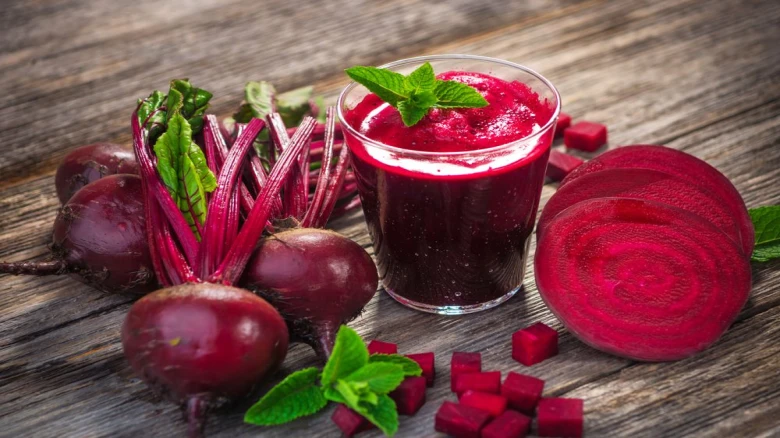Most significantly, beets provide additional health benefits. For example, nitrate aids in the reduction of blood pressure.
Digital Desk: Stronger muscles are required not only for physical health, but also to burn calories efficiently. It turns out that beetroot juice can help you gain muscle strength and improve your cardiovascular health. The most recent research on dietary nitrate, a chemical found in beetroot, spinach, and lettuce, reveals that consuming it before a workout may improve endurance and high-intensity exercise performance. Several studies have found that dietary nitrate supplementation, particularly beetroot juice, improves exercise performance significantly.
Researchers from the University of Exeter in the United Kingdom, the University of Queensland in Australia, and the National Institutes of Health in the United States discovered that participants who ingested nitrate experienced a 7% increase in muscle torque and muscle strength compared to those who received a placebo. The muscles basically employ the nitrate to boost their ability to contract by converting it to nitric oxide. Certainly beneficial to those suffering from heart problems.
Bailey et al. (2009) and Lansley et al. (2011) discovered improvements in cycling time trial and rowing performance. These data suggest that dietary nitrate may improve performance in trained athletes and active people.
Of course, additional vegetables with nitrates include spinach, radish, tomato juice, carrot juice, and other green leafy vegetables. Most significantly, beets provide additional health benefits. For example, nitrate aids in the reduction of blood pressure. A 2015 study looked at the effects of consuming 250 mL of beetroot juice every day and discovered that participants had considerably lower blood pressure after ingestion. Beets include alpha-lipoic acid, an antioxidant that helps reduce glucose levels and increase insulin sensitivity. Furthermore, their high fibre content promotes satiety and delays the release of glucose into the bloodstream. Beets are also high in manganese, which aids in the creation of insulin and the removal of sugar from the blood. They contain vitamins A and K, as well as minerals such as calcium, magnesium, and iron, which aid in the development of healthy skin and bones.
Despite promising results, the precise benefits of dietary nitrate on exercise performance and the processes underlying these gains remain unknown, and the postulated conversion of dietary nitrate to nitric oxide in the body may not be the only cause. Furthermore, studies on dietary nitrate have yielded mixed results, with some reporting significant improvements and others finding no impact. This disparity could be attributed to variations in study design or individual reactions to supplementation.
More study is needed to determine the processes and effective supplementation amounts. While supplements are typically safe, individuals should see a healthcare practitioner before initiating supplementation to ensure safe and effective use. As research advances, dietary nitrate supplementation may emerge as an effective technique for improving exercise performance in athletes and active people. It is also critical to recognise the potential dangers of excessive nitrate use, such as the production of dangerous nitrosamines. However, beetroot eating in moderation has been determined to be safe.

Leave A Comment